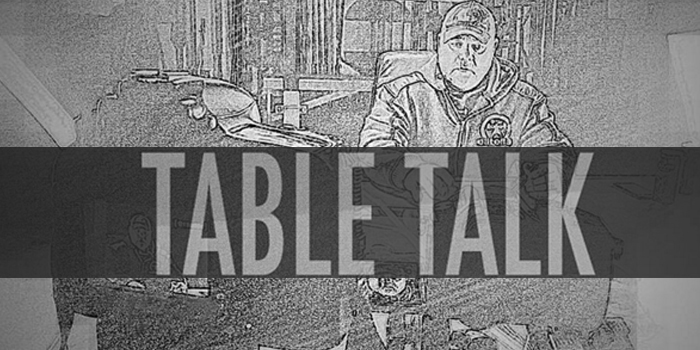
It's easy to get stronger when you first start training. Slowly add weight to the bar over time (you'll be able to as a beginner) and you'll get stronger almost every week. But what about when that slows down? Even for intermediate and advanced lifters, the same methods only work for a limited time frame. Try preparing for a meet with the same training cycle as the last meet and you'll have an entirely different level of success — for better or for worse.
This is how plateaus happen.
In this edition of Table Talk, Dave gives his best tips for breaking bench press plateaus. Among Dave's tips are the following five points:
1. Are you squeezing the bar hard enough?
Are you getting tight enough? This matters for the bench press and it all starts with the hands. If you aren't trying to squeeze the shit out of the bar, you're missing an opportunity to get tighter and press more weight.
2. Is your sternum dropping?
If you're letting your chest drop as the bar comes down, you're increasing your ROM, losing tightness, and creating the likelihood you will heave the bar off your chest.
3. Are your feet in the right place?
You can have your feet out in front of your or tucked underneath you but either way you need to be tight enough that your legs cannot be moved by someone walking by and pressing in or out on your knees. The tightness has to be total-body.
4. Are you pushing yourself away from the bar?
Instead of thinking of pushing the bar upward, think of pushing yourself down into the pad. This will help keep your back tight and decrease the range of motion if done correctly.
5. Are you deloading incorrectly or too often?
There's a mental component to deloads that makes you go into a light week without a serious training mindset. If you don't take 50% seriously, it's going to screw up your training and it will defeat the purpose of the deload.










